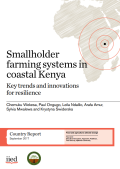
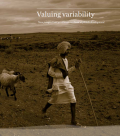
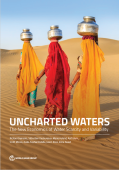
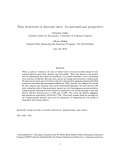
When a policy is evaluated, the rate at which future costs and benefits should be discounted depends upon their maturity and risk profile. When the shocks to the growth rate of consumption per capita are persistent, it is socially desirable to use a decreasing term structure of risk-free discount rates, and an increasing term structure of risk premia. These term structures are characterized when the representative agent has Epstein-Zin-Weil preferences and when log consumption follows an AR(1) process. The model is calibrated for 248 countries and economic zones of the World Bank database. The research shows that the efficient evaluation rules of long investment projects are very heterogeneous across countries. Using standard estimations of the preference parameters, the country-average 1-year and 20-year risk-free discount rates −1.42% and −3.27%. The 1-year and 20-year aggregate risk premia are respectively 4.21% and 7.12%. This study stresses both the necessity to use country-specific discount rates and the importance of estimating the risk profile of long-dated investment projects.
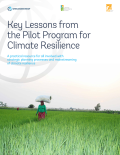
"Key Lessons from the Pilot Program for Climate Resilience" is a practical resource for all involved with strategic planning processes and mainstreaming of climate resilience.
This resource helps countries bolster the resilience of their infrastructure, natural resources and human development programs, to the effects of climate variability and change. The experiences presented come from the first 7 years of implementing the Pilot Program for Climate Resilience (PPCR) in 18 countries and covering sectors including agriculture and landscapes, water resources, coastal zone, urban development, climate information systems, and other infrastructure.
The top 10 Key Lessons from the PPCR highlight critical and strategic aspects that need to be considered in resilience planning and implementation. These lessons underscore the importance of institutional arrangements; information on climate vulnerabilities; leveraging finance; transforming at scale; engaging stakeholders; dedicated learning fora; engaging private sector; core indicators and monitoring; responsiveness to country context; and where relevant regional programming.
